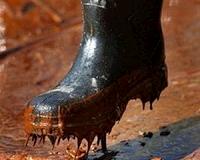| . |  |
. |
Pass Christian, Mississippi (AFP) Aug 5, 2010 US Gulf Coast residents can no longer smell the stench of oil or even see much on their sandy beaches, but that does not mean tourists are likely to return any time soon. On an August afternoon in 90-degree heat with a soft breeze blowing in off the ocean, the small coastal town of Pass Christian, Mississippi would ordinarily be enjoying a rush of tourists. As BP plugged and prepared to seal its stricken well with cement on Wednesday, there were few, but plenty of concern about the long-term impact of the disaster on tourism. Clarence Barthel was one of just six tourists walking on the miles of white sands in Pass Christian. A carpenter from New Orleans, Barthel has been coming to the town about twice a week for several years. "Maybe the tourists will be back next year," said Barthel. "But if there's any bad news, if anybody starts showing signs of illness, it could be a lot longer." This time last year, he said, there were hundreds of people on the beach and he could barely find parking. Now, he had his pick of the best spots. Barthel saw no reason to interrupt his visits to the town during the disaster, but says the environment on the beach has improved markedly over the last two weeks. Clean-up crews were combing the beach for tar balls and bulldozing away oil-soaked sand a few weeks ago, now there is very little evidence of anything untoward. Just 10 workers remained on the four miles (6.5 kilometers) of beach north and south of Pass Christian, wearing fluorescent jackets and walking up and down. Ruth Patterson from Jonesboro, Arkansas and Lou Calande from Rhode Island were also enjoying having the beach to themselves after a couple of days in New Orleans, less than 100 miles down the road. "It's beautiful, it's the first time I've seen the Gulf," said Patterson. "We saw eight little tortilla-sized oily spots but we just walked around them." In the marina, Thomas Jenin's restaurant "Shaggy's" has barely seen a drop-off in trade thanks to the influx of disaster-related professionals but there is uncertainty about the future now. "We've fed clean-up workers, environmental workers, journalists, so that's absorbed the lack of tourist trade," he said. "When the clean-up crews go home as they're starting to, hopefully tourism comes back with the same amount of growth, but who knows. There's only one way to find out." Some 75 percent of food sales at "Shaggy's" are seafood and Jenin is having to pay 40 percent more on those sales because he is having to ship in produce from Texas and northern US states. "It's been a crazy, crazy, crazy year," said Jenin. "But that's capitalism." In New Orleans, the Convention Visitors Bureau says it has seen very few cancellations since the oil disaster began. But the group is "very concerned with the potential for what is known as loss of opportunity'," said spokeswoman Jennifer Day. "Visitors or meeting planners who may have been considering New Orleans may now forgo the city as a destination due to misperceptions about how it has been affected by the oil leak." Restaurants like "Shaggy's" would like to sell local seafood as soon as possible, but they are fighting a perception battle, said Ewell Smith, executive director of the Louisiana Seafood Promotion and Marketing Board. "The Gulf oil spill has dramatically affected our fishing communities in Louisiana, but we still have coastline and waters that have not been affected," he said. Smith says the level of testing being done on Louisiana seafood is "unprecedented," and that based on those extensive testing, federal agencies like the Environmental Protection Agency and the Food and Drug Administration have concluded "Louisiana seafood is safe." Louisiana Governor Bobby Jindal pushed again earlier this week for BP to fund a 173-million-dollar, long-term seafood testing and marketing campaign to restore consumer confidence in the region's products. Restaurants across the country continue to play it safe and advertise that their seafood does not come from the region. A booth at the Taste of Chicago food event in July drew controversy for posting signs that read: "We do not serve seafood from the Gulf."
Share This Article With Planet Earth
Related Links Our Polluted World and Cleaning It Up
 Oil slick hard to find in Gulf, but impact will last decades
Oil slick hard to find in Gulf, but impact will last decadesWashington (AFP) Aug 4, 2010 The massive oil slick which once spread for hundreds of miles from BP's ruptured well deep in the Gulf of Mexico may be nearly gone, but its impact could be felt for decades to come. More than 15 weeks after the ruptured well began spewing enough oil into the sea to fill four Olympic-sized swimming pools every day, the US government has finally got a handle on what has happened to it all. ... read more |
|
| The content herein, unless otherwise known to be public domain, are Copyright 1995-2010 - SpaceDaily. AFP and UPI Wire Stories are copyright Agence France-Presse and United Press International. ESA Portal Reports are copyright European Space Agency. All NASA sourced material is public domain. Additional copyrights may apply in whole or part to other bona fide parties. Advertising does not imply endorsement,agreement or approval of any opinions, statements or information provided by SpaceDaily on any Web page published or hosted by SpaceDaily. Privacy Statement |